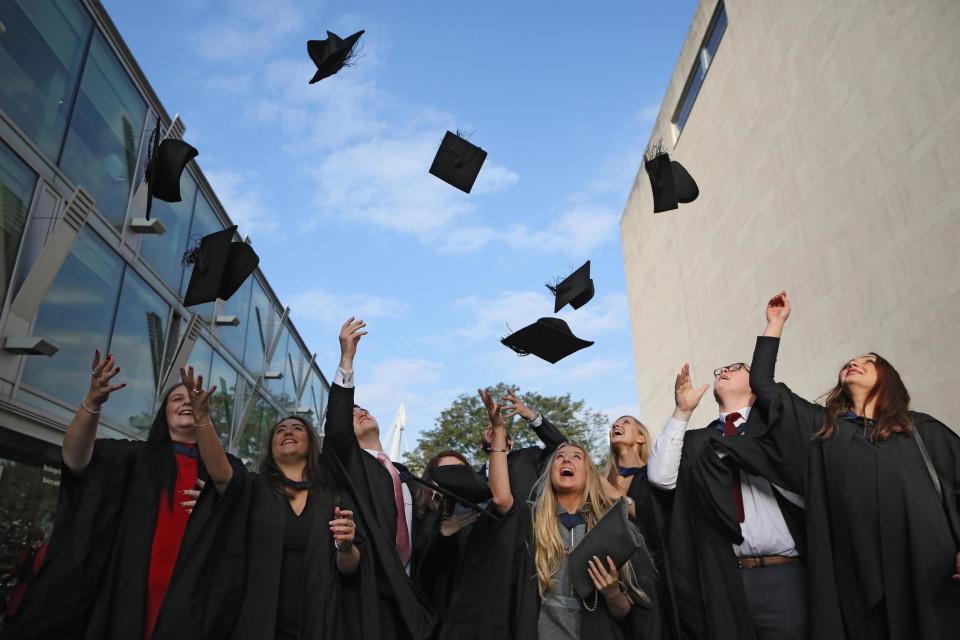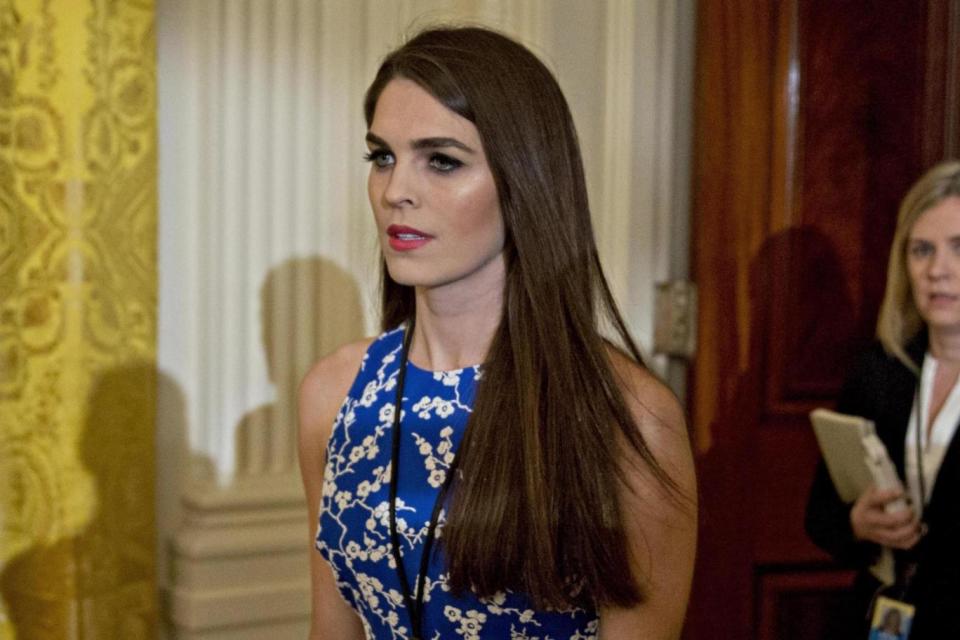When it comes to the perils of debt, the young are being left high and dry

There's the stench of a new mis-selling scandal in town. It’s not the banks this time — though they’ve ensured every other phone call we get is an automated voice asking about PPI — but the student loans company. Recent graduates are starting to feel they’ve been duped.
In July, First Secretary Damian Green said the country “may need a national debate” on university fees. That debate — fugacious and hushed — is now apparently over. Despite speculation that there would be a rethink, the Government is sticking with its plans to raise interest charges on student loans in England. They’ll now be up to 6.1 per cent. So congratulations, teenagers who’ve made their grades today and are now heading for a “care-free” student existence of... endless letters about how much money you owe!
We’re in an era of the lowest low interest rates — NatWest just tried to persuade me to open a savings account offering 0.01 per cent — and yet students are being whacked for inflation plus three per cent. There must be loan sharks out there offering better deals. What’s cheekiest is that this highest rate is levied on students while they’re studying. The Institute for Fiscal Studies (IFS) has calculated that, with annual fees at £9,250, students will have topped up what they owe with £5,800 in interest charges before they even don their mortarboard and gown for graduation.
The Department for Education’s defence is that students won’t have to pay if they can’t afford it. Repayments only start if a graduate earns more than £21,000 and loans are written off after 30 years. In fact, IFS modelling suggests three-quarters of students will never finish repaying their loans.
But repayments still eat into your earnings, as well as the sum you can borrow for a mortgage. As an 18-year-old I was scared of debt, and I was only being charged £3,000 a year. What has surprised me is that fees haven’t (so far) put off many poorer students. The idea of a “no win, no fee” education is the message that has got across.
But that’s the mis-selling part. We don’t teach the young about debt but we have taught them into debt. Children should learn about compound interest at school; instead, teenagers have been told this is cheap money. How many got adequate financial advice before taking on this borrowing? And what bank would get away with having a loan where the total cost for the borrower kept changing, and where it’s so difficult to check what you owe? All my dealings with the Student Loan Company were in Kafka’s Castle territory.
Critics of student fees tend to claim that they are a graduate tax in disguise, like a hooked-nose hag using her magical powers to appear beautiful. But it’s worse than a tax in some ways. A loan book can be sold on to another party and there’s little accountability about the way politicians handle it. That might be why the Government seems so blasé about piling this debt on to the young. Should have been born earlier, you schmucks!
In the run-up to June’s election, the higher education debate focused on tuition fees, thanks to the Labour manifesto pledge to scrap them. Having long opposed fees, I now believe there are better uses of public money — including bringing back maintenance grants for the poorest students — than axeing them entirely. Better to reduce fees and have a system where they are part-subsidised, part-paid for by the student, reflecting the way degrees benefit both society and the individual.
Labour was right, though, in Jeremy Corbyn’s statement that he wanted to reduce the burden on graduates repaying their debts. There is an easy fix here: in Australia, the interest rate is indexed to inflation. Any political party which doesn’t pledge that must be thinking more about potential buyers of the loan book than they are about miserably-indebted graduates.
A ray of Hope for the President

As Donald Trump continues to make a public service ad about the dangers of hyper-masculinity, he’s promoted a woman to help convey this message to the nation. Yesterday, 28-year-old Hope Hicks became the interim White House communications director, the fifth person to be offered this polonium-filled chalice. She’s actually been one of the most powerful staffers from the start, earns the joint highest salary of all the aides ($179,700) and is considered a “Trump whisperer” who can read his moods.
You’d think by now the President would be running low on qualified candidates but don’t worry: Hicks is a veritable C J Cregg! She’s a press secretary who doesn’t actually like speaking. Interviewed by Forbes, she admitted that she knew “very little about politics” before being hired by Trump. She did once model an outfit for Ivanka Trump’s website and has taken dictation for Donald’s tweets, though. That she still seems like the least objectionable member of the Trumpian circle reveals the quagmire the White House is in.

 Yahoo News
Yahoo News 